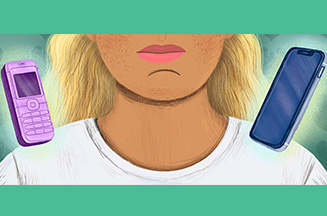Social Media Privacy
The first line of defense against cyber threats is strictly limiting the personal information you share online, whether it’s a credit card or bank account number, your address and phone number, or personal information. You also want to be cautious about social media comments that reflect your personal thoughts or go into detail about your private life. Even though you’re entitled to your opinions, your publicly viewable social media posts could hurt your relationships or even your career. If something that you post on social media is misconstrued, it can be difficult to clarify or apologize and could be used as a mark against you with your current or potential employers. The bottom line is that the more information about you that’s out there, the more likely it can be used against you.
On social media, you can help protect yourself by making full use of the privacy options on Twitter, Facebook, LinkedIn, and the other sites you use, and by always choosing the highest possible privacy settings. Read the descriptions of each option carefully, and turn off access to your identity in as many ways as you can. Here are some more guidelines:
• Restrict who can friend request you on Facebook. This form of caution helps you prevent colleagues and other professional acquaintances from learning too much about your personal life.
• Don’t automatically accept friend requests from people you don’t know. Once you do, your pictures and information that were not public can now be seen by your new friend.
• Protect your tweets and posts from search engines, and only make them visible to your followers. But remember that followers can screenshot what you write, even if they can’t retweet it.
• Don’t link your different social media accounts. When you link accounts, you are sharing your data, especially your personal data, in an exponentially more widespread way. This spread of data makes the job of phishers much easier, as your personal posts may include information about family, pet names that could be used as passwords, data about where you bank and shop, and other seemingly harmless personal facts that could be used to locate you.
• As a rule, never post anything you don’t want the world to read.
• Be cognizant of the questionnaires on social media. Often-times these activities ask questions that are believed to be innocent but the information can be taken and used against you in attempt to access your information.

